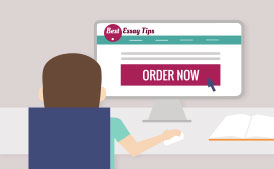 Do you have a lot of home jobs and it's not enough time?
Do you have a lot of home jobs and it's not enough time?  Just go to our website and order your papers from us!
Just go to our website and order your papers from us!  Get your finished paper within the specified time!
Get your finished paper within the specified time! How to Avoid Using Clichés in your Essays


What exactly is a cliché? And why is it wrong to use them in my essay? — These are two of the most important questions to ask yourself when you are writing an essay. Whether it is for a college application or an assignment at school — the way you craft your essay reveals a lot about who you are. This means, if you are going to fill your essays with cliché expressions and phrases then your reader(s) will only have one conclusion to draw—you are unoriginal.
A cliché is a hackneyed phrase that has lost its value and meaning over time. So anyone who uses clichés is perceived as lacking imaginative power or creativity. Most people who speak English as a second language have a tendency of flooding their essays with clichés. And I think there is some degree of tolerance given exceptionally to them. Given their limited stock in vocabulary and command of the language, using a cliché appropriately normally counts as a point. For native speakers, it is a totally different story.
So here are examples of worthless clichés to never ever include in your academic essays:
- It's only a drop in the bucket / as sick as a parrot- A people person / a jack of all trades
- Where there is a will, there is a way / every cloud has a silver lining
- Throughout history / in this day and age
That said, we cannot completely do away with clichés. But we can ensure that we avoid cheap and functionless clichés when writing our academic essays. Because sometimes the only expression that fits perfectly and accurately is a clichéd phrase. So we can avoid clichés in our essay by:
1. Being genuine: Tell your own story as honestly as possible. Be sincere with your writing and commit to bringing out your own creation. Attach real emotions to your text. Allow yourself to be the voice in your essay. Do not take someone else's description or anecdote, alter them a bit and then sell them off as your own; simple because most people found it exceptionally sensational. No. Be in touch with what you are saying. It might take you a while to get to that level but do it anyway. Because the truth has a way of catching up with your lie.
2. Resisting temptations: Unless you have explored exhaustively all of your language options, avoid using stereotype in your essay. Yes, it could be accurately relevant but always ask yourself if it is necessary. Because if you use a sensational cliché to drive your point home, for its gained validity and power; when you could exploit your own authenticity; then expect it to bore or annoy the reader.
3. Rephrasing the cliché: You can use a cliché to your advantage. Understand its meaning and look up synonyms for the word(s) you could use to shape your point. Make sure it captures the message you want to deliver. Avoid using word-for-word replacement from a cliché; it is even worse than using the exact cliché.
4. Being specific: Most clichés are vague. They generalize things and that is why their functions diminish over time. An essay, being an academic paper, requires a straightforward approach. State your point and support it. A cliché cannot provide you the precision you need to manufacture an engaging essay.
Be confident in your writing abilities; and if you are starting out, then take those baby steps gradually and progressively as you head up. Start digging deep into your resource bunker—we all have one. Creativity is not something you are given, it is within you—so start looking for it and you will realize you do not need clichés to write an award winning essay.
Related posts:

Why choose us
 Premium
Premium
Quality Paper Delivery
Delivery
on-time 24/7 customer
24/7 customer
support 100%
100%
Secure payment
How it works
 1. Submit your
1. Submit your
order 2. include your
2. include your
payment detail 3. start working
3. start working
process 4. download
4. download
your papers



